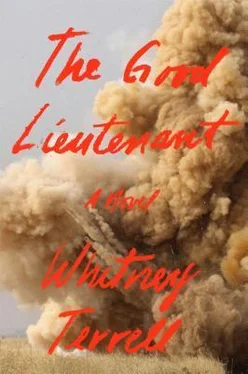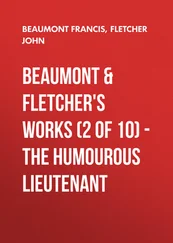And yet it didn’t feel that way. Here on a queen-size bed in the La Quinta Inn, drunk on the beer she’d brought, the room lit by the blue glow of Leno’s set, she was pleasantly aware of Pulowski’s increasing complexity.
“Sorry to disappoint you, Pulowski,” she said. “But knowing that I sleep around is unlikely to make my brother happy.”
“I thought we’d just established that he’s an idiot.”
She sat up and whomped him with a pillow.
“What the hell was that for?”
“This is my brother we’re talking about,” she said. “I’m the one who gets to say whether or not he’s an idiot. Not you.”
Pulowski got a curiously amused expression on his face. “Okay, then what do I get to say? What areas am I fit to comment on?”
“Yourself.”
“And you?”
“No, not me. Just you.”
Snorting, Pulowski scooted toward her along the bed so that they were shoulder to shoulder and he swiveled his hand down along her pelvis, and as she leaned her head back, she could smell the soap he used. His nose brushed her neck. “Then maybe I’m the idiot,” he said. “Because I am very, very happy”—his touch was like an electric current grounded through her body—“that you’ve done wrong with me.”
* * *
In the morning she got up early, before Pulowski did. It had been a mistake to sleep with him, she was sure of that. In her sleep, she’d had vague dreams about her company commander, Captain Hartz, leaning over her and telling her to get her shit in a pile, effective immediately. The scary thing was, in the dream she’d had the sensation that her shit was in a pile, at least everything that she understood her shit to be. Her files were all in order (in real life, a rarity). Her Beretta had been cleaned. She had a to-do list written up for the day. She’d even emptied out her email in-box entirely. It was a common dream of hers, one that she’d been repeating fairly frequently since she’d received her commission. There had been a frost overnight and the windshield of her truck was opaque. She searched through the bed and found her frost scraper and cleaned the windows off, then put her gloves back on and headed across the parking lot toward the Gas ’n Go, where she intended to buy some coffee for the ride back to Fort Riley. Halfway there, she turned around and walked back to Pulowski’s Celica and peered in through the windows to see if he had a scraper. He did not, though the inside of this car was extraordinarily clean and neat, far more than hers.
She returned to her truck, grabbed the scraper, and carried it back to his car, where she began scrubbing off the frost and dusting it away. Who was he to tell her how to be a lieutenant? Who was he to tell her how to talk to her brother? Of course, it was early enough in their relationship that she could break things off and no one would complain, least of all Pulowski. There had been no commitments made. No rules at all to govern their relationship — nothing that explicitly held them together or determined how they should act. It was just an affair, neither good nor bad. There was no group, no platoon, no company, no family, no blood, no country. No expectations. No structure to tell either of them whether they were doing things right. And thus, no way to judge it, no way to guess how it might turn out, or where it might possibly lead.
And yet she was out here in the cold at six a.m., scraping the frost off his windshield and feeling happier about it than she had any right to be.
PART FIVE. EPILOGUE. THE FIELD
The police station in Bini Ziad, a small town west of Baghdad, is in a long cinder-block building that has been painted white with a blue stripe. It’s early June. Lieutenant Emma Fowler follows an Iraqi constable and her company commander, Captain Hartz, through the front entrance and down a dank hall to a makeshift interview room, its walls constructed of sheets hung from wires overhead. The mother of the Iraqi whom Fowler shot that morning is there. She refuses to take Captain Hartz’s hand and then, checking her chair as if something might have climbed up on it, sits down with a sweep of her hand beneath her black skirt. She wears a Western blazer with gold buttons, a black scarf about her head, her mouth drawn prim and fierce. None of the humor that Fowler remembers in Pulowski, no self-deprecation, no eye turning inward. Instead, the woman speaks offhandedly to the Iraqi officer, her gaze askew, and moments later, a hand pokes through the sheets with a glass cup of chai. Money is what this says to Fowler; here’s someone who’s used to getting what she wants in this place. Captain Masterson is already there, seated at the table, his body armor piled in the corner. Fowler strips down too, but Hartz chooses to sit down in full gear, so that he appears swollen, like a giant pumpkin, the skin of his neck flushing scarlet. “This letter, ma’am,” he says as he unfolds a piece of stationery, “constitutes an official condolence for your son’s death from the coalition forces and the United States Army. This letter is not an admission of guilt. Your son was present during an attack on coalition forces, during which three soldiers were killed. We believe our soldiers acted properly to defend themselves.” He casts a hopeful glance at Fowler, which she does not match. “Unfortunately, these actions appear to have resulted in your son’s death. It was an accident, which doesn’t make it less of a tragedy.”
While these words are being translated, the woman rolls her eyes and grimaces at the curtained wall off to the interpreter’s left. But when the interpreter stops, and a silence falls in the small room, the woman’s face crumples in on itself, as if her resistance to the ridiculousness of Hartz’s monologue has been the only thing keeping her features in place. She begins to sob.
“I’m sorry,” Hartz says. He pushes the letter forward with a gloved hand.
This at least gives the woman something to do. She flinches and flares away from his advance, striking out and swatting the letter to the floor. Relieved, Hartz bends over to retrieve it, is stopped by the resistance of his body armor, and, grunting, scoots his chair out and drops to a knee.
“Can you even say his name?” the interpreter is asking by the time Hartz regains his seat. “Ayad. My son is Ayad al-Tayyib. Do you think a letter brings him back? Do you wonder why people are not happy in the way George Bush has freed our country? For what? So my son can die and bandits can drive me from my own house?”
“Yes, about these bandits,” Hartz begins.
“Why don’t you shoot them ?” This the woman says in English.
“That’s what we’d like to do, ma’am,” Masterson says. His back is to Fowler, who has stationed herself by the beaded door. She can feel the whisper of the room’s sheet wall against the back of her head like a shroud. Hartz laughs nervously, as if his fellow officer is a crazy uncle, friendly but given to overstatement.
“The reason we’re asking you to help us,” Hartz continues, “is that there were five bombs found buried in the field right behind your house, which we believe is your property. Is that correct, that it’s your property?”
The woman nods, almost imperceptibly.
“If so, these are very troubling charges, ma’am. Very troubling. If we were to find out, for instance, that you knew that your son — or anybody else — had planted those bombs there. And you did not come forward. That would be a very serious offense. And, well, I’m sorry to say we believe that an American soldier’s body has been hidden there. Buried, I mean.”
“Sorry to say!” Masterson bursts out. He opens a manila folder. From it he retrieves two sheets of yellow legal paper covered in handwritten Arabic. There’s a photo clipped to each page.
Читать дальше












